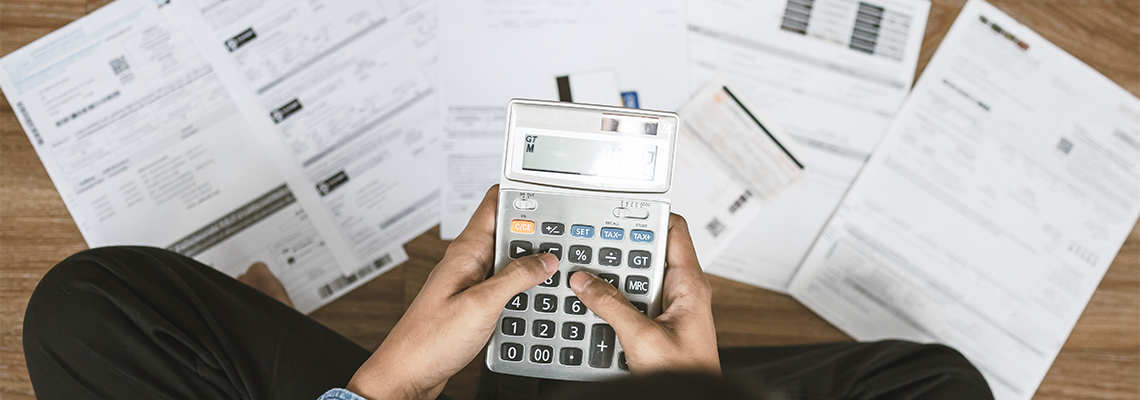
How Long Does Bankruptcy Appear on a Credit Report?
Debt can add an abundance of stress to your life. Bill collectors constantly contacting you by phone, text, or email, are extremely overwhelming. However, the word “bankruptcy” scares many people away from an otherwise legitimate route to getting a fresh start in life. Many people think it means losing everything and never being able to establish credit again.
These are false allegations. Depending on the type of bankruptcy you file, you can virtually keep everything through a debt reorganization plan or take advantage of exemptions from bankruptcy that could indeed involve the sale of some assets. At the conclusion of either type, you’ll be discharged from your unsecured debt obligations and have a fresh start.
If your debts are getting out of hand and you’re skipping payments or just making endless “minimum due” payments in or around El Dorado, Arkansas, contact us at the Rushing Law Firm, PLLC, to explore your options under the bankruptcy code. We will review your financial situation with you, devise a plan going forward, and then help you navigate the bankruptcy system toward your fresh start in life.
Our bankruptcy attorney also proudly serve clients in the neighboring areas of Magnolia, Camden, Crossett - Union County, Columbia County, Ashley County, and Ouachita County, Arkansas.
Options Under the Bankruptcy Code
For most people, the two basic options under bankruptcy are Chapter 13 and Chapter 7. Chapter 13 is the “wage earner’s plan,” since it means you have a steady enough income to pay off a portion of your debts over time. Chapter 7 is the liquidation option, which may mean turning over some assets to the court to satisfy creditors, at least partially.
Chapter 13 Reorganization Filing
Chapter 13 involves computing your “disposable income,” which means whatever you have left over after meeting the basic essentials of life – home, children and their health and education, food, qualified retirement savings, and more. This amount will then be used to pay the bankruptcy trustee assigned to you on a monthly basis. The trustee will pay creditors, but generally at a reduced amount. After three to five years, you will be discharged from all unsecured obligations.
What about your home and car in Chapter 13? Homes and vehicles are secured debts, meaning the lender, mortgage holder, or lessor can take the home or vehicle back if you don’t stay current on the monthly obligation. The good news under Chapter 13 is if you have past-due (arrears) payments, you can sometimes include those in your repayment plan. You’ll still have to meet your monthly obligation, but the arrearage can be paid off as part of your overall plan.
Chapter 7 Liquidation Option
Chapter 7 is the faster of the two options and can generally be done in a few months. However, you have to pass an income test based on the size of your household. If your income is too high, you will be forced into Chapter 13.
When you hear “liquidation,” that can be pretty scary, but Arkansas allows bankruptcy petitioners to use either the state’s allowed exemptions or the federal code’s exemptions. In Arkansas, for instance, you can exempt up to $27,900 in equity in a primary residence. There are also exemptions for clothing, health aids, a single motor vehicle, and tools of the trade for your profession.
Also, note that your qualified retirement accounts and many other benefits, such as unemployment insurance, Social Security, and worker’s compensation, are not subject to seizure. On the flip side, if you have any student loans, overdue taxes, or ongoing spousal or child support payments, those cannot generally be discharged.
As with Chapter 13, you will have to attend a creditors’ meeting supervised by the bankruptcy court. The creditors can challenge your filing, but most generally don’t.
When you file for either Chapter 13 or Chapter 7, the court will issue what is called an “automatic stay,” meaning your creditors must cease contacting you or trying to collect on their debts. When it comes to secured debts such as homes and motor vehicles, this gives the filer a chance to renegotiate the terms, but you should keep in mind that secured creditors can petition to have the stay lifted. You will have to act quickly.
How Long Do Chapter 7 and Chapter 13 Stay on Your Credit Report?
As a general rule, a Chapter 13 filing will stay on your credit report for seven years, and a Chapter 7 for ten years. This does not mean that you cannot obtain credit for seven or ten years. In some cases, credit card companies and auto dealers will contact you almost immediately, but you have to be careful because the terms can often be onerous – high-interest rates and late charges will probably apply.
Ways to Improve Your Credit Rating After Bankruptcy
One way to help your credit rating after bankruptcy is through obtaining a secured credit card. For a secured credit card, you make a deposit, and that deposit becomes what is available to you. Again, be a savvy consumer and compared interest rates, fees, and other details. Avoid annual fees as well.
Your Fresh Start Can Begin Today
If you are struggling with debt in or around Eldorado, Arkansas, contact us at the Rushing Law Firm, PLLC, immediately. We have been helping others in your situation get a fresh start for more than a decade now. Let us review your finances and debt obligations and advise you of the best path forward, Chapter 13 or Chapter 7. We will then work with you to successfully navigate the system and obtain your new financial beginning.
